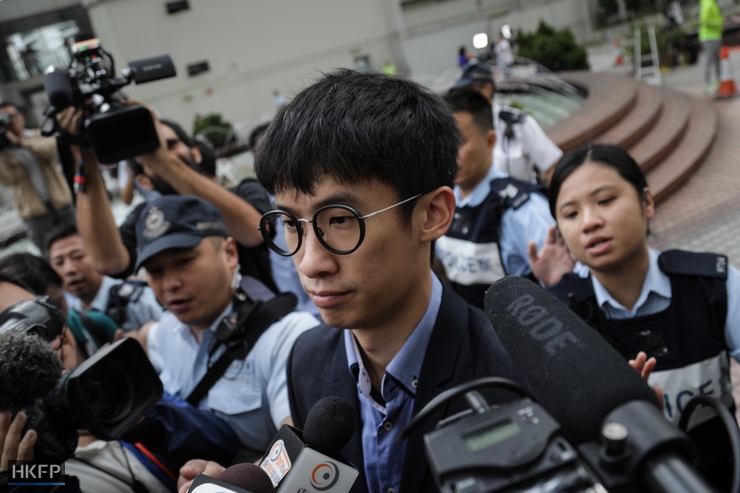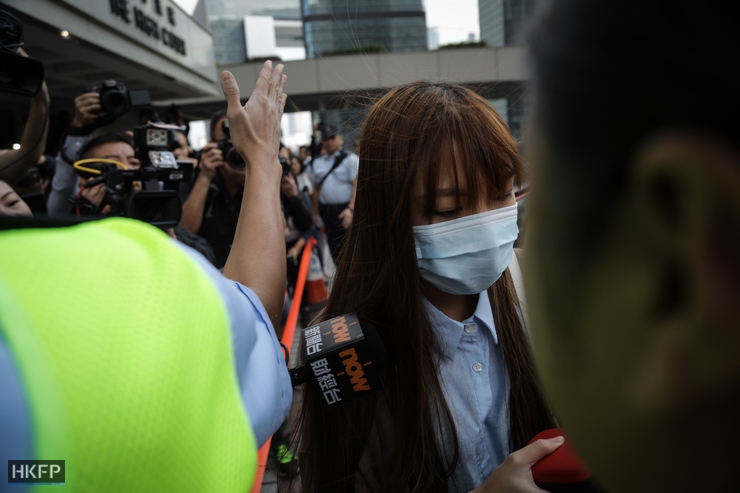The government argued in court on Thursday that Youngspiration politicians Yau Wai-ching and Baggio Leung Chung-hang declined to take their oaths as lawmakers last month.
Representing the government, Benjamin Yu also told Mr Justice Thomas Au Hing-cheung that the case can – and should – be resolved within Hong Kong, and that the government has not asked Beijing for an interpretation of the Basic Law, nor has it received any confirmation from the central government. He rejected claims by a local legal scholar to media that the government sought the interpretation because it was not confident in winning the case.

Chief Executive Leung Chun-ying and Secretary for Justice Rimsky Yuen Kwok-keung lodged a judicial review against the two localist legislators, stating that the pair declined or neglected to take their oaths. The government says that they should not be allowed to be sworn-in again and that their office should be declared vacant by the court.
‘Vacate office immediately’
Yu said Article 104 of the Basic Law and Section 21 of the Oaths and Declarations Ordinance should be read together, in which case the duo, by having “declined” to take the oath, should vacate their office immediately.

Article 104 of the Basic Law states that lawmakers must “swear allegiance to the Hong Kong Special Administrative Region of the People’s Republic of China.”
Section 21 of the Oaths and Declarations Ordinance stipulates that any person who “declines or neglects to take an oath duly requested” shall vacate his office if he has entered on it, or is disqualified from entering on his office if he has not yet done so.
Yu said Leung and Yau swore the oath to the “Hong Kong nation” with the banner “Hong Kong is not China,” and Leung crossed his finger during the course. They pronounced China as “Chee-na,” a derogatory term for China, which he said was widely used by Hong Kong independence advocates according to Wikipedia.

Basic Law supremacy
Yu also said that the principle of the non-intervention of the judiciary over the legislature should not be applied in this case.
“In Hong Kong, the Basic Law is supreme, LegCo is not supreme, unlike in some jurisdictions,” he said. He added that Leung’s and Yau’s counsel had failed to submit that they have not declined to take the oath.

Yu said that while freedom of speech applies in LegCo debates, it does not apply in oath-taking, as lawmakers have a constitutional duty to take their oaths.
He argued that the power of final adjudication on the meaning of the provisions concerned lies in the court, not the legislature’s president.
Local media cited sources on Tuesday saying that Beijing would discuss issuing an interpretation of the Basic Law on Thursday, and that it planned on banning “unusual”oath taking and even taking oaths more than once.
Additional reporting: Chantal Yuen, Tom Grundy.
